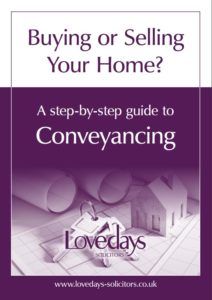- Home
- Personal Services
- Advice for Employees
- Conveyancing
- Dispute Resolution
- Boundary Disputes
- Dealing with Rent Arrears
- Japanese Knotweed Claims
- Landlord and Tenant Disputes
- Landlord Harassment & Illegal Eviction
- Negligence Claims Against Builders & Developers
- New Build Property Disputes
- Noisy Neighbour Disputes
- Personal Debt Collection
- Property Misrepresentations Claims
- Rights of Way Disputes
- Section 21 No Fault Evictions
- TOLOTA Claims
- Tree & Hedge Neighbour Disputes
- Divorce and Separation
- Family Law
- Lasting Power of Attorney
- Licensing
- Probate Law
- Trusts
- Wills
- Business Services
- Reviews
- Make An Enquiry
- Cost and Service Information
- About Us
- Contact Us
Divorce Financial Settlements
When you divorce a partner, you will need to reach a financial settlement with them regarding what happens to the money, property and assets that you both hold. This is often one of the most hostile elements of a divorce, and it is important to know what your legal rights are.
{quote}
What is a Divorce Financial Settlement?
When you divorce or end a civil partnership, you will need to agree on how you separate your finances. This includes things such as pensions, savings, investments and property. It is important to seek professional legal advice on this, as you may be entitled to a share of your partner’s pension or regular maintenance payments to help with caring for children or living expenses.
This can be incredibly important, as it will help to ensure that any children are properly provided for, as well as taking into account current or future financial needs and the standard of living that the family is used to.
A Lovedays Solicitor can make sure that you understand what you are entitled to and can help you negotiate throughout the process to help you both reach a fair agreement that you understand and are happy with. It is important that this agreement is correct and legally binding, and your solicitor will be able to help you with this.
Legal Framework of Divorce
During the process of reaching a financial settlement, you may come across Section 25 of the Matrimonial Causes Act 1973. This provides the basic guidelines that will be followed to decide how assets should be divided. It addresses whether there are dependent children involved and makes their needs and welfare the first point of consideration.
It will then look at the income, earning capacity, property and financial resources that each party has or is likely to have in the future, and what any future financial obligations might be, which usually considers the cost of re-housing each party and their relevant outgoings.
The standard of living that the family has become used to should also be thought about, as both parties should be able to enjoy something similar in the future. The age of each party and the duration of the marriage will also be a factor. In short marriages, the contributions before marriage will be more relevant, and if no children are involved and the couple are young then a clean break order may be issued which prevents parties from making a financial claim on the other.
If there are any disability issues, these will also be taken into account, and contributions made to the welfare of the family, whether financial or as a homemaker, will be considered. The benefits a party might lose access to in a divorce will be looked at, as will the conduct of each party.
{quote}
The Process of Deciding on Divorce Financial Settlements
When deciding on a divorce financial settlement, you will usually be asked if you can come to an agreement with your ex-partner without the need for court intervention. This should be done by both parties fully disclosing all of their finances before entering into a negotiation.
You should then try to decide on a fair settlement, which will require professional legal advice in order to make sure that you understand your rights and entitlements based on your own unique circumstances. The process of negotiation can be challenging and should be done either directly between the parties or through solicitors exchanging out of court letters, which can help to take some of the emotion out of the issue.
If you are unable to reach an agreement over your finances, then you can ask a court to make a financial order for you. In order to do this, you will first need to attend a meeting about mediation, however, there are some exceptions to this, such as in cases of domestic abuse. If mediation does not help you to reach a conclusion, then the case will be forwarded to the court.
There will be a short hearing with the judge to discuss your application, and you will then be given a financial dispute resolution (FDR) appointment to help you agree without needing to progress to a final hearing. If this is unsuccessful, you will go to a final hearing where a judge will decide how your finances should be separated.
A court cannot usually make a financial order until you have your conditional order or decree nisi, so you should apply in between getting this and your final order or decree absolute. Any financial order that is put in place will not take effect until after you receive your final order or decree absolute.
It is usually beneficial to come to a mutual arrangement if it is at all possible. This tends to be the cheaper option as it can usually be resolved much quicker and will not involve any court fees. By the time a financial settlement reaches court, things have often become very acrimonious, and it can be a stressful and difficult time for all parties, so you should make every effort to avoid this if you can.
Types of Assets in Divorce Settlements
Any divorce financial settlement will need to distinguish between matrimonial and non-matrimonial assets. A matrimonial asset is something which is jointly owned or acquired and will need to be divided between the two parties. This might include the family home or car, pensions, businesses, savings accounts and even furniture.
A non-matrimonial asset existed before the marriage and can include assets which have been inherited by one spouse during the marriage, gifts that were received by one spouse, assets already owned before the marriage and property solely owned by one partner which is not the family home.
These non-matrimonial assets in most cases are not subject to division, however, this can vary if one spouse is found to be in a position of real need. Non-matrimonial assets may have been owned before the marriage, but they need to be separate from the matrimonial wealth, so if something was sold to pay for a family cost such as school fees or a holiday, then the money raised will be considered to be matrimonial for the purposes of the divorce settlement.
As each situation will be different, it is important to seek proper legal advice. The longer a couple has been together, the more matrimonial assets there are likely to be, and separating these out can become a much more complicated process.
{quote}
Property Division in Divorce
When it comes to fairly dividing property during a divorce settlement, most courts will look to split things equally where they can. However, the court will also look at the income and earning potential of both parties, any debts and financial resources that each might have, as well as the value of the property in question. They will also take into account the financial obligations of both parties and the age of the individuals and the length of the marriage. It may also be necessary to examine what each spouse contributed to the welfare or the family or the property. In addition to this, the welfare of any children will also be taken into consideration.
In general, a financial settlement will offer either equal or unequal property division. An equal division means that both parties will receive the same if their capital needs are met. However, an unequal division may be considered to be fairer if there are non-matrimonial assets involved, or if one party has specific needs which need to be met. A stay-at-home parent who has been out of work for a long time in order to raise the children might need more financial support than the working partner in order to assist them in continuing to provide care or get back into work.
Pension Division in Divorce
Your basic State Pension cannot be shared if you divorce, however, if you have an additional State pension then you may have to share this with your ex-partner if they do not remarry.
In the case of private pensions, the total value of what you have built up will be taken into account and then divided between both parties. This will not only apply to pensions that have been accrued during the marriage, but all of your pensions, not including the State Pension.
Pensions can be taken into account in a number of different ways. They may be shared, meaning that the partner who does not have the pension has a share of the pension benefits transferred into their name. They will receive a pension credit and may be given the option to choose whether to keep it in the existing scheme or transfer it to a new one.
The process of offsetting is also an option and allows the value of a pension to be offset against other assets. For example, in order to keep hold of a pension, your ex-partner will receive a greater share of other assets, but this is only possible if there are sufficient non-pension assets available.
A pension attachment order could also be put in place, which allows the partner without the pension to receive income or lump sum payments from it in the future. However, this does mean that you will have to wait until your ex-partner chooses to take their benefits or dies, and you will have no control over how the pension is invested.
Why Choose Lovedays Solicitors for Your Divorce Financial Settlement?
At Lovedays Solicitors, we have a team of dedicated experts who have spent years handling divorce financial settlements. Their friendly and professional approach means that you can rest assured that your case will be dealt with in expert fashion and with care and discretion.
We have helped many couples reach a financial settlement, and our legal advice and expertise can help to make the whole process run more smoothly, whilst ensuring that all parties receive a fair and reasonable outcome. We treat every case as unique and will work hard to take all of your circumstances into account in order to reach the correct settlement for you and your family.
Conclusion
Divorces can be very stressful times, and reaching a financial settlement can often prove to be one of the most difficult elements of it. With emotions running high, it can be hard to know what is fair and what you should rightly expect, which is why you need our help.
{quote}
Frequently Asked Questions
Pensions can be shared in a number of different ways depending on the circumstances of the parties involved. Their whole value will be taken into account as part of the settlement, and may be split equally or offset.
Debts can be regarded as being jointly acquired in the same way that assets can, and these will be considered by the court. The cause of the debts and what they were used for will all be taken into consideration.
You should make sure that you never hide assets during a divorce settlement as this can be heavily penalised. If you have non-matrimonial assets, you may be able to ring fence or offset them. Alternatively, you could consider a prenuptial or postnuptial agreement to protect any financial assets or business interests.
Get Support Today
If you are going through a divorce, then contact Lovedays Solicitors today for the answers to all of your questions. We can help to make sure that you reach a divorce financial settlement with the help of expert legal advice and a friendly face.

Free Guide
If you don’t know your leasehold from your freehold, then get our Free Conveyancing Guide. It contains details about the steps you will need to take with any property transactions. The Guide giving you detailed guidance on what your lawyer will be doing for you and what to look out for.


Lovedays Solicitors, Brooke-Taylors Solicitors, Potter and Co Solicitors and Andrew Macbeth Cash and Co Solicitors are the trading names of Derbyshire Legal Services Limited which is a company registered in England and Wales under company number 08838592. Registered office Sherwood House, 1 Snitterton Road, Matlock, Derbyshire, DE4 3LZ.
Authorised and Regulated by the Solicitors Regulation Authority under SRA ID number 637916.
-
01629 56660
-
This email address is being protected from spambots. You need JavaScript enabled to view it. -
Sherwood House
1 Snitterton Road
Matlock
Derbyshire
DE4 3LZ
© Copyright 2019 Derbyshire Legal Services Limited | Website by WebWorks